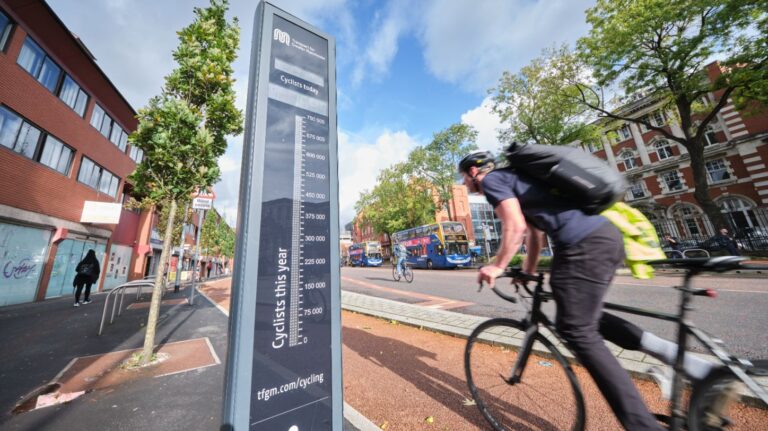A new report has named three UK cities as some of the worst in Europe for clean transport options.
The report, published by clean air advocacy coalition Clean Cities Campaign, used indicators of shared micromobility options, such as e-bikes, zero-emissions buses, publicly-available electric vehicle (EV) charging infrastructure and shared electric cars to rank 42 European cities.
For each indicator, cities received a score between 0 (worst) and up to 10 (best) depending on their
performance, with the highest grade being awarded for ‘any score corresponding to or exceeding a maximum value defined by the research team’.
UK cities to feature on the list included Greater London, which ranked 24th with a score of 12.5 out of 40 (based on the mentioned indicators), Glasgow (25th), Edinburgh (38th), Birmingham (39th) and Great Manchester (42nd), which was named as the worst.
According to the consortium, global cities and their residents are experience a triple threat of climate change, air pollution and the cost of living crisis.
Clean Cities Campaign highlighted that making it easier for residents to get rid of private vehicles would support the broader goal of reducing road transport emissions.
Sarah Rowe from Clean Cities Campaign, said: “Greater Manchester is undergoing a huge change in its public transport system right now as the authority takes more control, and we applaud the work that is happening to clean up the bus fleet. But our report highlights that there are lots of quick and easy ways that Greater Manchester can move to a cleaner transport system, such as expanding electric car clubs.
“The UK government has not helped matters by delaying crucial legislation that would support a rollout of e-scooters, which have proven to be very popular in Salford. If this change can be unlocked then there is a clear opportunity here for the city region to seize the moment and to give people the support they need to ditch their polluting cars.”
The environmental group pointed out the lack of availability of zero- or low-emissions transport options throughout Greater Manchester in particular, with the report revealing there are just 0.7 bikes or scooters per 1,000 people in the area.
The current Greater Manchester Environment Plan outlines a priority to phase out fossil-fuelled private vehicles and replace them with cleaner alternatives.
A group spokesperson added that cities were chosen that played a “prominent role in the debate on urban mobility” domestically or in a broader European context.
The group likewise aimed to “ensur[e] a broad geographical spread to represent the diversity of European cities”, while also choosing locations based on data availability and where the group had significant enough present to “engage in a constructive dialogue” with city leaders and administrators.





